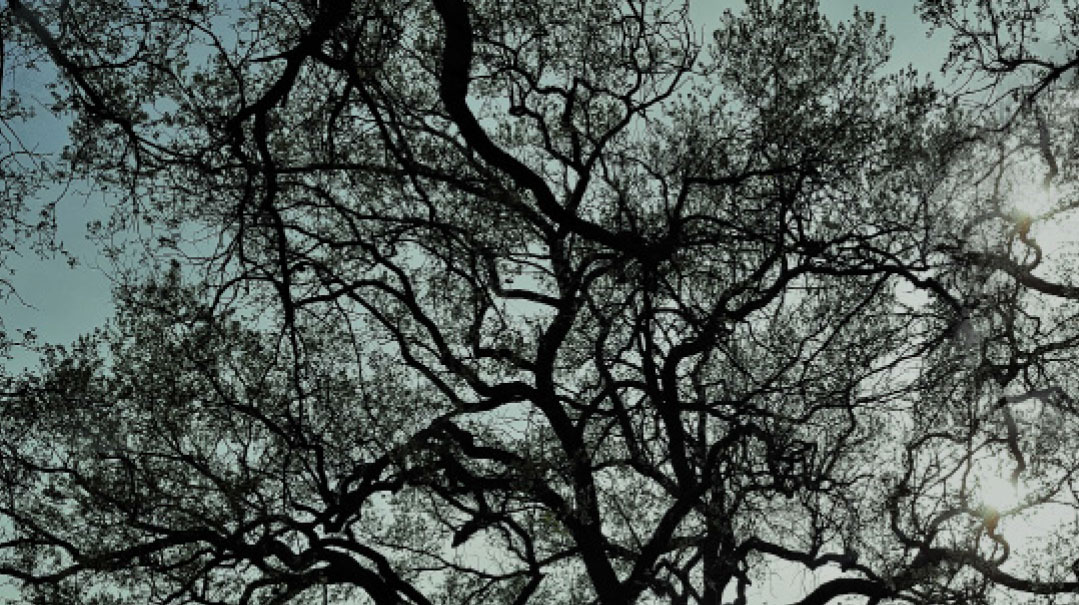Tree of Life

The kindness the Kaliver Rebbetzin, Rebbetzin Chana Sarah Shifra Taub, planted gave shattered survivors strong roots

Life was still idyllic in Vishau, Romania, in 1922, when Shifra, the youngest child of the illustrious Shapiro family, was born. Her intellectual, inquisitive mind stood out, and her older sister was determined she attend Bais Yaakov. While their grandfather, the noted Berzanne Rav, opposed sending girls to Bais Yaakov, in Shifra’s case he conceded that it was a good idea — paving the way for her future role as a mechaneches.
“A pity she isn’t a bochur!” her proud father quipped as he watched his daughter soak up the Torah she learned.
When Shifra reached marriageable age, she was introduced to Menachem Mendel Taub, known as the Kaliver Rebbe, a young man who had already acquired a reputation as a tzaddik and talmid chacham. The young couple settled in Vishau, but storm clouds soon darkened the skies. Three days before Shavuos of 1944, they were deported to Auschwitz-Birkenau.
A few days later, on Motzaei Shavuos, Shifra’s sister and children reached Birkenau, where they found Shifra waiting at the gate to see if there were any familiar faces among the new prisoners. Most of the family, including Shifra’s sister, were immediately sent to the gas chambers; only two of the daughters survived.
“We were always close like sisters,” recalls one of her surviving nieces, Rebbetzin Chaya (Leifer) Rubin. “Imagine what it was like to meet in Birkenau! Her presence was nothing short of miraculous.”
Chaya was just 18 when she arrived in Birkenau with her older sister — she’d celebrated her birthday on a cattle car. “My sister and I were left all alone in the world,” says Rebbetzin Rubin. “The other members of our family had been sent straight to their deaths. We fell into our aunt’s warm embrace and from that point on, we walked through the valley of death side by side with her.”
The two girls were subjected to incredibly harsh conditions in the camp — yet Shifra’s inner wellspring of unwavering faith imbued them with spirit and strength. “Throughout everything,” recalls Rebbetzin Rubin, “Shifra kept reiterating that we would survive, and live to tell our miraculous tale.”
One Friday night, the three women were singing Lecha Dodi together when the Jewish blockälteste approached and slapped Shifra across the face. “You really think we’re going to survive and continue to sing these songs?” she challenged her.
Shifra met her gaze confidently and calmly. “Yes, I do,” she replied.
“She was a beacon of strength for us and for many others too,” says Rebbetzin Rubin, “Wise, pious, and righteous beyond her years.”
When the Germans realized the camps would soon be liberated, they forced the inmates into a horrific six-week death march, then herded them onto a train. The prisoners were starving, but Shifra managed to procure some food.
One woman who saw Shifra with food in her hand lunged at her and attacked her — her mind had unhinged due to the deprivation and starvation she’d endured. The woman savagely bit both Shifra and another girl standing near her. The other girl soon died from her wound. Shifra survived — although for the rest of her life, her hand would remain badly scarred.
“The memory of what happened next never ceases to amaze me,” Rebbetzin Rubin reflects with lingering astonishment. “When we finally arrived at our destination, Bergen-Belsen, the Nazis gave us each some coffee. But Shifra didn’t drink it — she used the liquid for washing because, she said, her hands needed purification.”
After their arrival in Bergen-Belsen, Chaya fell ill with typhus. In her already weakened state, she understood she might not survive. When she noticed the German soldiers wearing white bands indicating their surrender, she murmured dejectedly, “The yeshuah is here but not for me.”
Shifra scolded her, “Chaya, no! You will soon tell your story to my brother in America, the Kechnier Rebbe!”
“Her words gave me a lift, both emotionally and physically,” remembers Rebbetzin Rubin; they rejuvenated her, giving her the strength to recover.
Liberation — and a Mission
On April 15, the camp was liberated, but the women were too weak to travel. When they had sufficiently recuperated, the three were sent to a DP camp in Sweden, where they recuperated emotionally and physically, and Shifra continued to work to keep up the other women’s faith and spirits. Then, six months after the war ended, came a high point — the Rebbe discovered that his wife had survived and traveled to Sweden to reunite with her.
“We heard the news that the Rebbe had arrived!” recalls Rebbetzin Rubin, a lilt in her voice. “What a joy it was — for everyone! The Rebbe was a pillar of strength.”
The young Rebbe would circulate among the camp, giving uplifting lectures, and singing with the survivors. His powerful words and comforting melodies helped breathe new life and faith into the broken survivors, and his encouragement eventually brought many back to Yiddishkeit.
In 1947, the Taubs set off for America, living first in Cleveland, then Brooklyn. Wherever they were, they threw themselves into their life’s work: drawing others close, helping shattered survivors rebuild. The couple never had biological children — a tragic consequence of the Rebbe’s camp experience.
“It seemed that this noble couple was specifically destined to nurture others,” says Rebbetzin Rubin. “Rebbetzin Shifra took in two young sisters, Basya (today Michelovitz) and Malka (today Rosenberg), who had no home and raised them, as she would have raised her own, with wisdom, love, and warmth.”
Another memento of the camps: the Kaliver Rebbe was unable to grow a beard. Yet his long peyos framing a nearly bare chin and glowing face symbolized so much of his life’s struggle and achievements. He was forever scarred, yet his suffering never held him back.
“After the war, I returned to Bergen-Belsen, and I saw so many shattered Jews,” the Rebbe once related. “I was shattered as well, but then I said to myself, ‘Menachem Mendel, why are you standing here? Why are you letting yourself be broken? You have to take action! You have to strengthen Yidden!’”
Rebbetzin Shifra established a successful girls’ school in Bensonhurst. She was an outstanding educator and like a second mother to her students, building their self-esteem and devoting special attention to those who needed it.
In 1962, the Rebbe and Rebbetzin moved to Eretz Yisrael, settling in Rishon L’Tzion, where the Rebbe established the first Kiryas Kaliv, with a yeshivah and kollelim and a national network of shiurim. Several years later, he moved the chassidus to Bnei Brak, and finally, in 2004, to Yerushalayim. (The chassidus today is still centered in Yerushalayim, led by the new Kaliver Rebbe, Rav Yisroel Mordechai Yoel Horowitz, son-in-law of Malka Rosenberg.)
“Their departure was hard for me because we were so close,” says Rebbetzin Rubin. “They even scheduled their flight to Eretz Yisrael for one day after my son’s bar mitzvah, just so that she could attend my simchah before she left! But at the same time, I was happy for them that they were pursuing their personal ambition and dreams, and I knew one day I’d visit them in Eretz Yisrael.”
The Taubs’ home in Eretz Yisrael was simple, with modest furnishings and illuminated by bare bulbs — yet it became a luminous haven for guests. People came for advice, for a meal, home-cooked food packages for Yom Tov, or a place to stay. Everyone, from family and friends to brokenhearted strangers, found a warm, welcoming environment in their home.
The Taubs brought many wayward Yidden back to their Jewish heritage, provided endless moral support for those in need, and dispensed huge sums of money for tzedakah to cover Yom Tov and wedding expenses for the needy.
“They did innumerable acts of chesed every single day, and made a powerful difference in many people’s lives,” recalls Rebbetzin Rubin. “When I visited them in Eretz Yisrael, people who heard I was related to them would subsequently ask me for my blessings!”
Rebbetzin Taub was noted for her piety; her whispered tefillos were accompanied with tears, her speech always refined and positive. She never spoke about others’ flaws; in fact, she seemed to not even notice them.
“Rebbetzin Shifra was a pillar of strength upon whom I and so many others were able to lean on, learn from and grow from,” says Rebbetzin Rubin.
The Rebbetzin passed away in 2011 at 94, leaving the Rebbe — her partner and confidant — heartbroken. At the shivah, the Rebbe asked for the same brachah from each of the gedolim who came to be menachem avel: that the passing of his greatest inspiration not affect his determination to build and that he find the strength to continue inspiring others.
Her influence spanned continents — and communities. A grandchild of one of the Rebbetzin’s older sisters who had perished during the Holocaust once came to visit her. Perel*, along with the rest of her other family members, had completely lost any connection to Yiddishkeit after the war. Still, she came to see the Rebbetzin and expressed an earnest desire to learn about her roots and perhaps see a detailed family tree.
The Rebbetzin sat beside her and patiently drew a tree with roots and sprouting branches, clearly indicating and labeling ancestors, grandparents, children, and grandchildren by name in their precise order and place. When she got to the branch of this great niece, she scrawled her name and then blurted abruptly: “The tree stops here!” Then she dropped her face into her hands, sobbing violently.
The young girl was moved by her great aunt’s sincerity. “No, tante, it will not stop here!” she assured her. Slowly, she began attending classes and learning more about her heritage. Her parents were initially not supportive but later came around. Her fiancé was similarly appalled by her metamorphosis, but then he too followed in her footsteps.
They married and raised a wonderful, Torah-true family that is growing and thriving to this day — all a vibrant offshoot of the seeds the Taubs had sown. The Rebbe and Rebbetzin never had biological children — yet their family tree is flourishing.
(Originally featured in Family First, Issue 702)
Oops! We could not locate your form.












